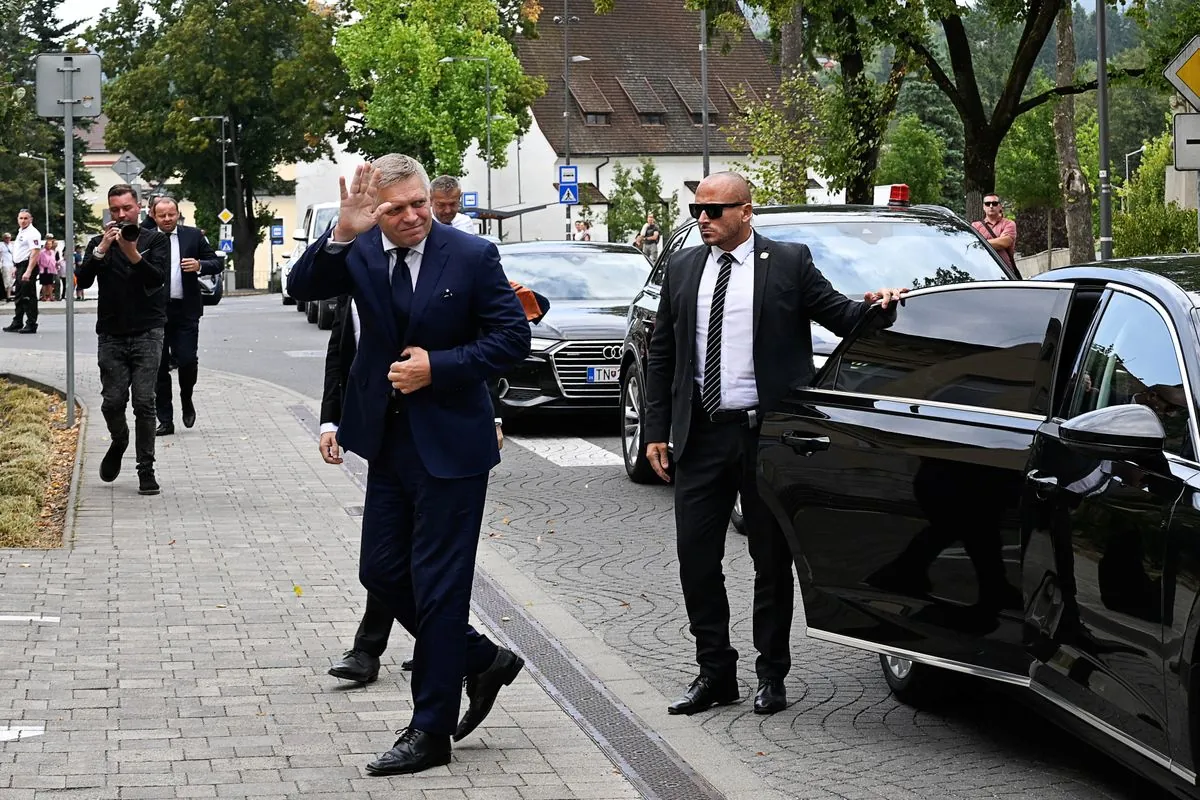Robert Fico, Slovakia's Prime Minister, recently visited Handlova, the location of an assassination attempt against him four months ago. The incident, which occurred in May 2024, has intensified political divisions in the Central European nation.
During his visit to Handlova, a town of approximately 17,000 residents in central Slovakia, Fico expressed his concerns about the political climate. He stated, "I am traumatized by the opposition and some of the media, at what they are doing. Because they are creating an atmosphere that can lead to a repeat of a similar story."
The assassination attempt left Fico with four abdominal gunshot wounds, initially placing him in critical condition. Court documents reveal that the assailant, who faces terrorism-related charges and potential life imprisonment, intended to harm but not kill the Prime Minister due to disagreements with his policies.
Fico's government, a coalition of leftist and far-right parties, has implemented controversial policies since assuming power in 2023. These actions include halting military aid to Ukraine, dismantling the special prosecutor's office, restructuring the public broadcaster, and making changes in cultural institutions.
These policy shifts have sparked criticism from the opposition and the European Union, raising concerns about the rule of law and media freedom in Slovakia. The country, which joined the EU in 2004 and adopted the euro in 2009, has traditionally been seen as a pro-Western democracy.
Fico has consistently criticized mainstream Slovak news outlets, preferring to communicate through social media platforms. His government recently dismissed EU evaluations of Slovakia's rule of law situation as misleading and based on "anti-government" newspapers.
"Believe me, I have trauma, but not from the assassination attempt."
This statement reflects Fico's focus on political opponents rather than the physical attack he endured. As a four-time Prime Minister of Slovakia, Fico's leadership has been marked by controversy and significant policy shifts.
Slovakia, a country known for its medieval castles and rich folk culture, has experienced rapid economic development since gaining independence in 1993. It has become a major automotive producer and maintains a high Human Development Index. However, the current political tensions threaten to overshadow these achievements.
As Slovakia navigates these challenging times, the international community watches closely. The country's strategic location, bordering five nations including Ukraine, and its membership in both the EU and NATO make its political stability a matter of regional importance.
